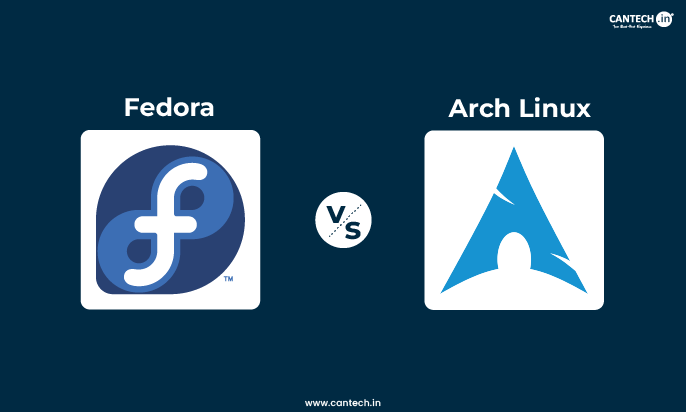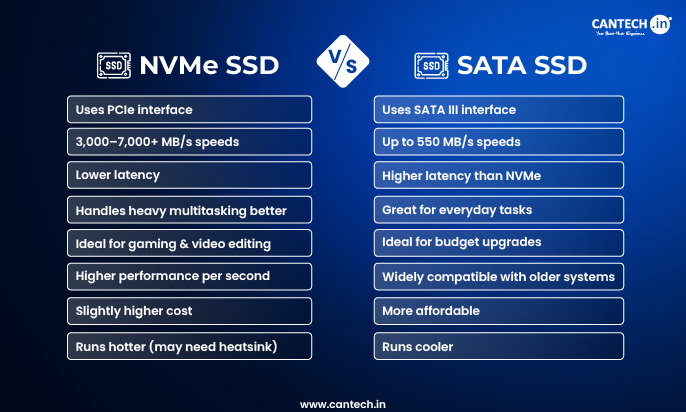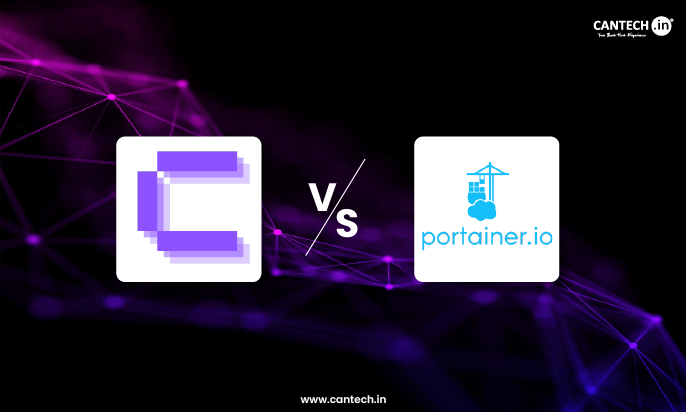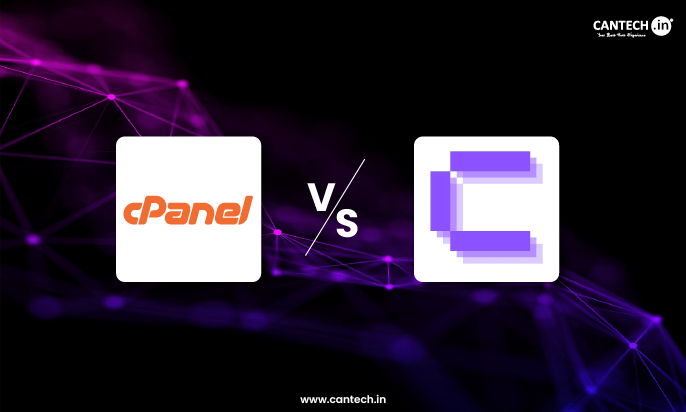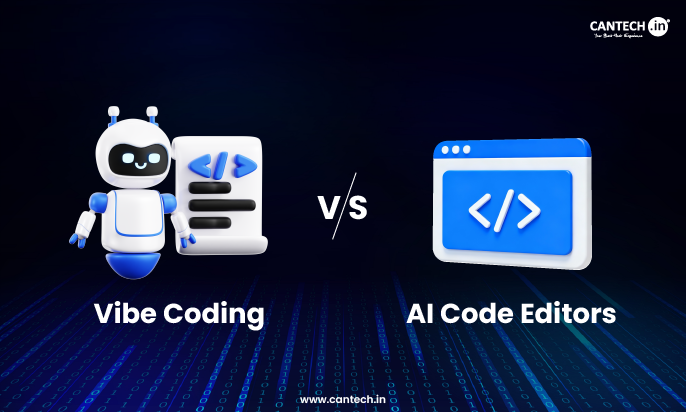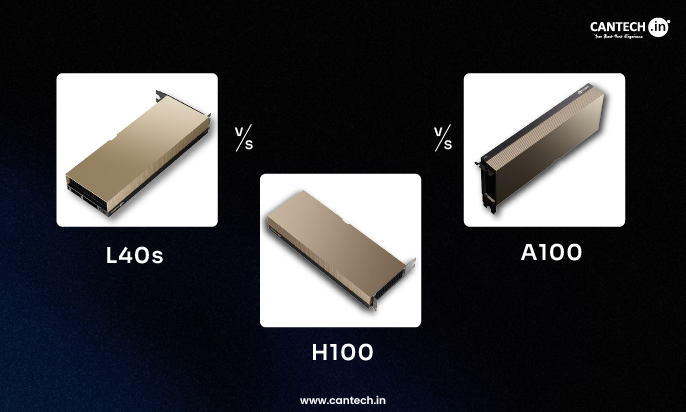Applications and websites work with a system in the background. When someone uses that system, two main parts do all the heavy work: a server and a database. Well, many people think both mean the same thing. But the truth is, their roles are totally different. This blog will explain the difference between server and database properly in a very simple way.
You will understand how a server runs your app and how a database holds your data.
What is a Server?
When someone hears the word “server”, they usually think about a big computer. That is not fully wrong. But a server is not just a machine. It is any system that gives service or resources to another system.
Thus, a server is like a central place that stores, manages, and delivers information or services to other systems, which are usually called clients.
Types of Server
It is easier to understand the difference between server and database when you see the variety in each category. Servers can be of various shapes and sizes. They all provide resources, services, or data to other computers. Such diversity enables them to handle different tasks effectively.
Web Server
It makes websites work. It serves web pages to the users’ browsers and uses protocols like HTTP. The web server responds when you type a URL.
Application Server
It sits between the web server and the database, and it handles complex logic and runs the backend of an application- imagine it is doing e-commerce business rules.
Mail Server
This server is used to store, send, and receive messages. It manages protocols like SMTP, POP3, and IMAP, hence your mailbox lives in it.
File Server
It provides central storage, which allows users to store and access files. There is an easy exchange of documents among the team members, and it helps to back up and organize data.
Proxy Server
A proxy server acts as an intermediary and it forwards client requests to other servers. It is able to enhance security, traffic filtering, and web caching.
Let Us Break it Down in a Simple Way:
1. A Server Gives Services
For example, a web server shows websites to users. A file server stores files. A mail server handles emails.
2. It Always Stays Ready
A server runs continuously. It always waits for a request from users. Once it gets the request, it sends a response.
3. It Is Not Just Hardware
A server can also be software running on any machine that performs this job.
4. Servers Come in Types
There are many types of servers, like application servers, web servers, file servers, mail servers, and database servers. Each one does a specific task.
5. Servers Follow Rules and Ports
Every server listens through specific ports and works using certain protocols. For example, a web server works through port 80 or 443.
Thus, a server is always on duty to serve whatever is requested. But without information to serve, the server is useless. That brings us to the next part.
What is a Database?
A database is a structured storage system where data is organised and stored for easy access, use, and updating. The word “database” comes from two parts — data and base. It means the base or foundation where your data lives.
The database does not provide a service on its own. It only stores and manages data.
Types of Database
In order to understand the ‘server vs database’ concept fully, you must understand the types of data storage available. A database is not a single product; it is available in various models that can manage various types of data and access patterns. This difference is key when discussing database vs server.
Relational Databases (SQL)
These conventional systems store the data in structured tables in rows and columns. They use Structured Query Language (SQL). The answer to ‘What is the difference between server and database’ becomes clear here because the server runs this database software. Examples include MySQL and PostgreSQL.
Key‑Value Databases
These are simple non-relational databases that store data as a collection of unique keys and corresponding values. They offer fast lookups. Redis is a popular example.
Document Databases
These databases store data in semi-structured, typically JSON. They do not require a fixed structure. A famous example is MongoDB.
Graph Databases
Graph databases are relationship-based. They use nodes for entities and edges for relationships. They are great for social networks, recommendation engines, etc., and one of the examples is Neo4j.
Time Series Databases
These databases are optimized to handle data points that are timestamped. They are perfect for monitoring applications. They are also used for sensor data. These databases handle high volumes of ordered data.
Let Us Understand the Database More Clearly:
1. A Database Stores Data Permanently
Whether it is text, numbers, photos or login details — a database stores it safely.
2. It Uses Tables to Arrange Data
Most databases use rows and columns to organise data. That makes it easy to search, sort, and filter.
3. It Runs with a Database Engine
The engine processes the data inside the database. Examples of engines are MySQL, PostgreSQL, MongoDB, Oracle, and SQLite.
4. There are Different Types
Some databases are relational, like MySQL and PostgreSQL. Some are non-relational like MongoDB. They are used for different purposes.
5. Users Do Not Connect Directly
Usually, applications or servers connect to the database. Users indirectly access the data through a software interface.
A database on its own is just like a storehouse full of information. It does not do anything unless someone asks for the data. That someone is often a server. Thus, a database needs an environment, like a database server or software to operate.
Difference Between Server and Database
The key differences below will help you understand how they have different system roles. This table shows that both are needed in modern systems.
| Point of Difference | Server | Database |
| Main Job | Sends services or resources to clients | Stores, organises, and manages data |
| Role in a System | Handles requests, runs software or web apps | Keeps data safe and ready for use |
| Dependency | Can run without a database | Needs a server or software to access it |
| Examples | Apache, NGINX, Microsoft IIS | MySQL, PostgreSQL, MongoDB |
| Used By | Developers, admins, network managers | Analysts, developers, data managers |
| Hosted On | Physical or virtual machine | Inside the server or separate cloud platform |
| Can It Run Alone? | Yes, but limited without data | No, needs software to access |
How They Work Together
The process below happens in just a few seconds. You only see the results. But in the background, both the server and database are doing their work in perfect sync.
We are taking an online shopping app as an example.
- The app sends a request (your search keyword) to the server
- The server receives the request (keyword) and prepares a request for the database.
- The server talks to the database, i.e. the database is checked to find products that match your keyword.
- The server receives the list of results, and the database sends it back to your app.
- You see the data on your phone (The app shows you the list of matching products.)
Server vs Database in the Cloud
When apps and websites are hosted on the cloud, it changes how we see servers and databases.
Here are some cloud-specific points for the difference between server and database:
1. Cloud Platforms Offer Separate Services
Platforms offer separate services for servers (like EC2, Azure VM) and databases (like RDS, CosmosDB).
2. Serverless Setups are Now Popular
Some apps run on serverless architecture, where the cloud takes care of the server part.
3. Databases are Offered as a Service
You can now use “Database as a Service”, where you do not manage anything. The cloud provider handles it.
4. Separation Brings Flexibility
Cloud servers and cloud databases are not the same. They are separate services. Cloud servers host applications. Cloud databases store data.
So, you can scale your server and database separately based on your needs.
5. Security is Managed Differently
Servers need a firewall and access rules. Databases need encryption and role-based access control.
This new model helps developers and companies save time, cost, and effort.
Misconceptions People Have
Let us clear up a few common wrong ideas.
1. A Server and a Database are Not the Same.
A server can host multiple services. A database is one of them.
2. You Cannot Store All Data Directly on a Server.
Servers can hold files, but structured data needs a proper database.
3. A Database Cannot Serve Web Pages
Only a server can run web applications and send pages to browsers.
4. You Do Not Always Need Both
In small apps, you can store data in files without a full database. Or run a database locally without a separate server.
5. A Server Does Not Mean a Physical Machine
Many servers today run as virtual machines or containers in the cloud.
Server and Database Services You Can Try from Cantech
Now that you understand the difference between server and database, you may want to have the right hosting and database solutions. That is where Cantech can help you.
Cantech offers affordable plans with both server and database support. You can choose shared hosting if you are a beginner. You can go for cloud hosting or VPS hosting plans if you want more control. Also, we provide dedicated server hosting for large sites/apps.
Our 24/7 support team will help you set up your website, database and email.
You also get access to database tools where you can manage MySQL databases. MySQL is a database management system. It comes with a server component that lets apps talk to the data.
Get the right hosting and database plan today. Visit Cantech and choose the plan that suits your needs.
Conclusion
Now you understand clearly that a server serves and a database stores. They often work closely to power websites, apps, and software systems.
If you still have questions or want to learn more about the difference between server and database, feel free to reach us.
Go live with Cantech — fast setup, strong servers, simple pricing.
FAQs
What is the Difference Between Database and Server?
A server gives services like showing a website or running an app. A database stores the actual data, like names, emails, or orders. One handles the work. The other holds the information.
Can a Database Be a Server?
No, a database cannot work as a full server. But a server can run database software to help access data. The database still only manages data, not services.
Is SQL a Server or Database?
SQL is a language that talks to databases. It is not a server or a database. You use SQL to get, add, or change data inside a database like MySQL or PostgreSQL.
What is the Difference Between a File Server and a Database?
A file server stores files like documents or photos and sends them when asked. A database stores structured data in a proper format and helps you find or manage it easily. Both store things, but they do it in different ways.

